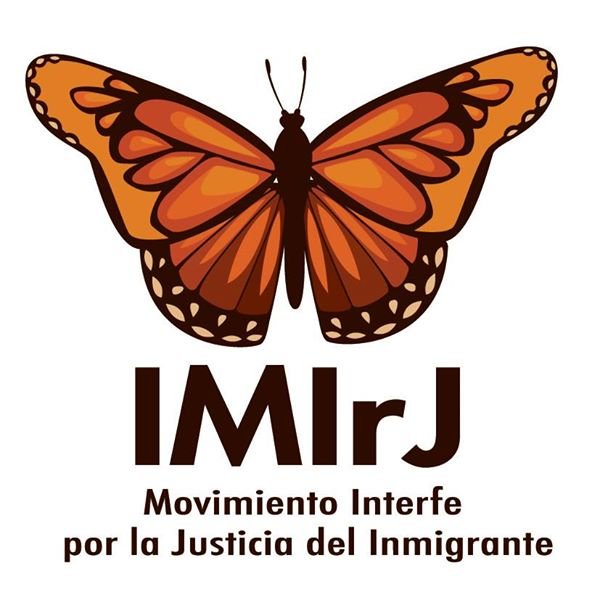Faith-based Organizing
Circles of Convivencia
How?
Convicencia circles include the following:
Hybrid gatherings in person or online
Ongoing strategic planning for our community needs
Community sharing of meals
Monthly educational workshops
(ex: the grassroots issues of immigration and cultural Humility)
Peregrinajes (pilmagre)
(ex: Caravan trips to North West Detention Center in solidarity with La Resistencia)
Advocacy opportunities
Advocate for the board of commissioner meetings requesting implementation of a budget for asylum seekers (this is a past WIN)
Recreo (recreate) time to take a break, recreate life all around, and pause and reassess what works what did not work, and what can shift.
As the interfaith movement for immigrant justice, we seek to meet with faith-based organizations and organizations/individuals in moving onward for immigrant justice. We are currently co-creating two circles of convivencia. Our faith-based convivencia circles include primarily congregations that are allied to the diaspora of the immigrant community. We look forward to cocreating with you.
For additional information please email Rvda Keren Rodríguez at keren@imirj.org
La union hace la fuerza!
Currently, IMIrJ has circles of convivencia. Covinvencia is an an act of coexistence, of living together, while acknowledging our differences. When we refer to la convivencia, we refer to communities being with one another and belonging to each other while we co-create and co-learn a pathway and journey onward. In the global south convencia circles are broad and often put the being with one another as a central part of existing and being with each other.
Convivencia circles are often not focused on the productivity of the circles, but instead, on how we can intersect with one another. This then moves us toward an invitation to an intersection where we first revise the self to understand how to interact with the other. Through the deeper work of understanding the “Self,” We ask initially who we have been. Who are our ancestors, and how can we learn from them? What reparation we might offer and how does our legacy play a role in who weare as humans today?
We can then co-create and open space for others to share our experiences with and horizontally co-learn from each other. We put our bodies, and our wounds first, we pause, we listen, and reassess where we might have shared values as a convivencia circle where some of the experiences we can differ from.
Why a convivencia circle now?
We recognize that more and more, we live in a capitalist society that asks of us to be means to an end, that often “divides and conquers,” which is a long reason why forces of imperialism have tried to remove us from our stories and whitewash our legacy.
We acknowledge as an organization that we, too, have harmed and seek new ways to honor all of our organization's ancestors, including organizers, friends, staff, volunteers, and others who have made our organization work thrive in the past.
While we are grateful we hope to continue to work with our comunidad and attend to our immigration justice issues. While we do so, we believe that by listening to our bodies, and our spiritual journeys we remove the focus on the systems and place it back on the individuals who make our comunidad greater in a decolonizing way.



